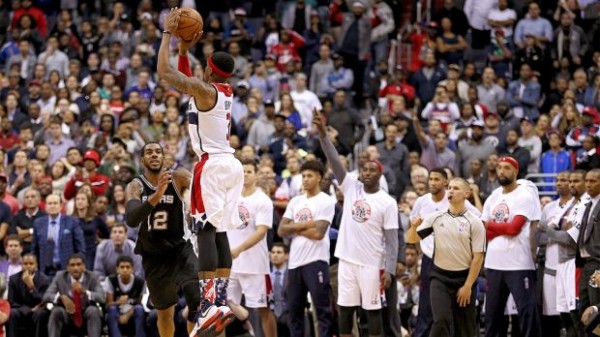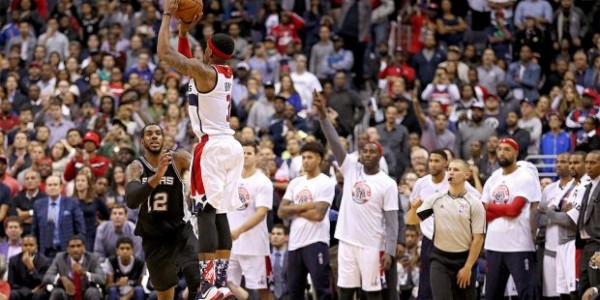
The San Antonio Spurs not scorching through their opponents and LaMarcus Aldridge settling in slower than some wanted him to with the new team doesn’t mean anything about what’s going to happen with this team once the real season, aka the NBA playoffs, begin.
Patience. That’s part of the Spurs M.O. and it’s especially necessary when a new player with such a meaningful role arrives. If Aldridge would have landed on almost any other team in the league I’m pretty sure his numbers (14.8 points on 41.4% from the field) would have been better. But he’s with a team that doesn’t demand from him a huge bulk of the shots, and it’s going to take time before he is synchronized with the rhythm, movement, spacing and demands that the Spurs are accustomed to.
Aldridge didn’t have a good game against the Washington Wizards, as the Spurs lost for a first time after three consecutive wins. He’s still struggling to hone into his new role, moonlighting between the shots he used to take for the Blazers and what the Spurs need and want him to do. Tendencies that have been built for the better part of nine seasons are hard to shake off, but the Spurs never thought Aldridge was going to average 25-12 right off the bat. They don’t need him to; not now, not in six months.
Aldridge was involved in the final play of the game, and not in a good way. With the game tied at 99-99, the Wizards set up one final play. John Wall got the ball off the inbound pass and waited for Beal to get open. Danny Green had Wall covered, but Beal, despite being guarded by Kawhi Leonard, made the smart of move of running through Marcin Gortat, creating that second or two he needed to lose Leonard. The Spurs made an automatic switch, which meant Aldridge on Beal. The shooting guard threw him to the left and was wide open to bury the game winner. Maybe Leonard should have done a better of job of getting around Gortat; maybe Aldridge shouldn’t have bought that fake. But these things happen to excellent defenders, let alone mediocre ones like Aldridge. This isn’t something the Spurs should be worried about, although it is something for opponents to learn from.
Aldridge is used to something else. He had a 30.2% usage ratio last season. This year so far? Only 23.9%, his lowest since the 2009-2010 season. He’s taking five less shots per 36 minutes per game. It’s a brand new world for him and the Spurs, who aren’t used to a player of his caliber being inserted into their well honed, “homegrown” system. It might even cost them some games in the regular season. But Aldridge wasn’t brought over for that. If it means he’ll be a lot sharper in the postseason, they’ll gladly pay the tuition for making him understand what it means to be a Spurs player.
